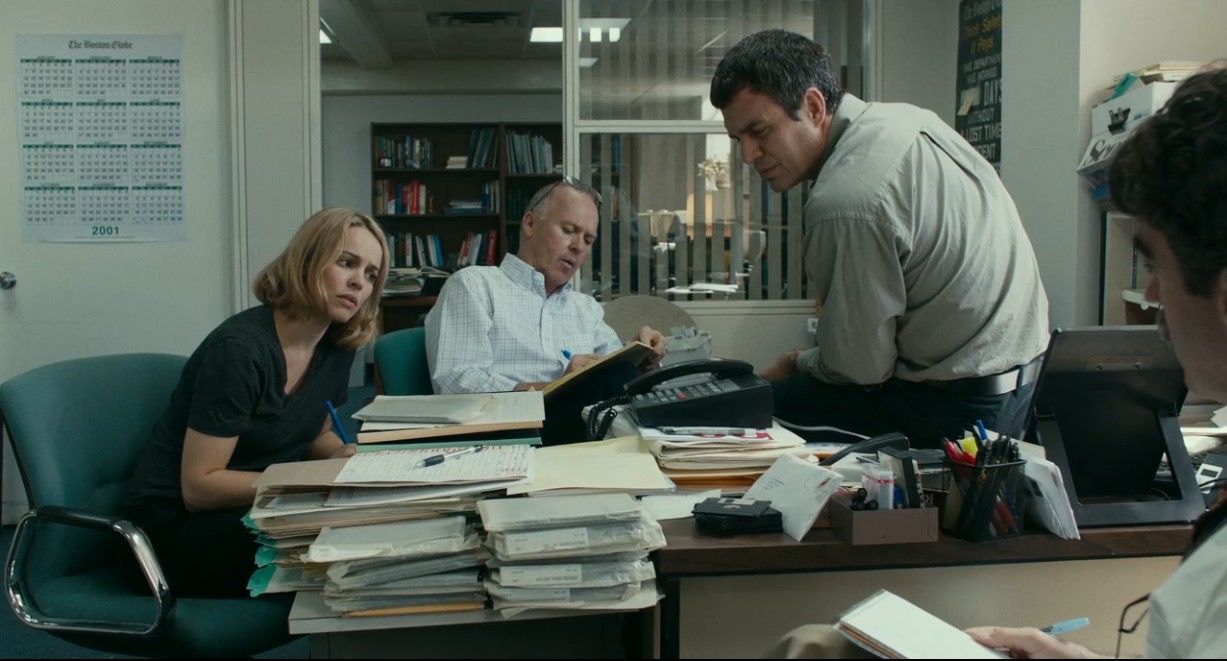The Oscar race kicks off with Tom McCarthy’s Spotlight, an awards front-runner par excellence
Before a problem can be fixed, it must first be brought to light, which can be a painful process. Sexual abuse of children by a number of Catholic priests was ongoing for decades, and it was only in 2001 that members of The Boston Globe’s investigative unit, the Spotlight Team, took on the Catholic Church to challenge a system that effectively covered up sex crimes and allowed sexual predators to walk free.

This investigation is the focus of Spotlight, a new film drama by Tom McCarthy which shares stories of abuse survivors while paying tribute to the journalists who fought hard to let these voices be heard.
The appointment of a new editor, Marty Baron (Liev Schreiber), signals a change at the paper. Baron is an outsider—a Jewish man from Miami in a predominantly Catholic city—which gives him a broader perspective. He sees a problem and decides to use any available resources to tackle it, even if it means suing the Catholic Church.
What starts with a single case of sexual abuse by a priest in Boston becomes an investigation into an actual epidemic, as numbers of perpetrators—and survivors—grow into the hundreds, and it becomes clear that lawyers and high-ranking clergy members were involved in a cover-up.
The four people who make up the Spotlight Team—Michael Rezendes (Mark Ruffalo), Walter Robinson (Michael Keaton), Sacha Pfeiffer (Rachel McAdams) and Matt Carroll (Brian D’Arcy James) are dedicated professionals who were willing to set their private lives aside—few of them seem to have one anyway—to consecrate themselves to an elusive ideal: the truth.
The film is tense, hopeful and optimistic, but also has a sense of self-importance which signals that the end of the year is fast approaching, with the Oscars just around the corner.
It compares favourably to All the President’s Men, the film that set the standard for all investigative journalism movies. Perhaps what it lacks is some danger. You’re told throughout of the immense influence of the Catholic Church, but you rarely get a feel of it. The closest it comes to a demonstration of power is when a villainous nurse slams the door in Pfeiffer’s face, after a seemingly senile priest started casually recounting his escapades with teenage boys.
For the rest of the film, what captures your attention is the investigative process itself. It’s a pleasure to observe the workings of these journalists’ minds, their defiance of authority and lack of self-interest.
Schreiber, Keaton and Ruffalo stand out in a subdued but involving cast that includes Stanley Tucci as an attorney with insider access to adults who once fell prey to sexual abuse from priests. “He’s one of the lucky ones, he survived,” Tucci’s character says about one of them. Another survivor has noticeable needle marks on his arm. While the film is not always subtle about its subject, characters wisely provide no comment when you’re shown some of the latest young survivors. You’re not told of the dark road that awaits them when they grow up, because there’s no need for it. By then, you’ve come to realize that the real pain may just lie ahead.



